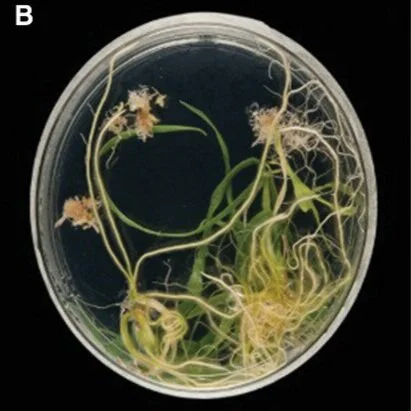OpenPlant PI Wendy Harwood (John Innes Centre) and her team recently published their work describing a new strategy for transformation of wheat using the bacterium Agrobacterium tumefaciens.
An Efficient Agrobacterium‐Mediated Transformation Protocol for Hexaploid and Tetraploid Wheat.
Sadiye Hayta, Mark A. Smedley, Martha Clarke, Macarena Forner and Wendy A. Harwood
Curr Protoc. 1(3):e58.
https://doi.org/10.1002/cpz1.58
ABSTRACT
Wheat, though a key crop plant with considerable influence on world food security, has nonetheless trailed behind other major cereals in the advancement of gene transformation technology for its improvement. New breeding technologies such as genome editing allow precise DNA manipulation, but their potential is limited by low regeneration efficiencies in tissue culture and the lack of transformable genotypes. We developed, in the hexaploid spring wheat cultivar “Fielder,” a robust, reproducible Agrobacterium tumefaciens–mediated transformation system with transformation efficiencies of up to 33%. The system requires immature embryos as starting material and includes a centrifugation pretreatment before the inoculation with Agrobacterium. This high‐throughput, highly efficient, and repeatable transformation system has been used effectively to introduce genes of interest for overexpression, RNA interference, and CRISPR‐Cas‐based genome editing. With slight modifications reported here, the standard protocol can be applied to the hexaploid wheat “Cadenza” and the tetraploid durum wheat “Kronos” with efficiencies of up to 4% and 10%, respectively. The system has also been employed to assess the developmental gene fusion GRF‐GIF with outstanding results. In our hands, this technology combined with our transformation system improved transformation efficiency to 77.5% in Fielder. This combination should help alleviate the genotype dependence of wheat transformation, allowing new genome‐editing tools to be used directly in more elite wheat varieties.

